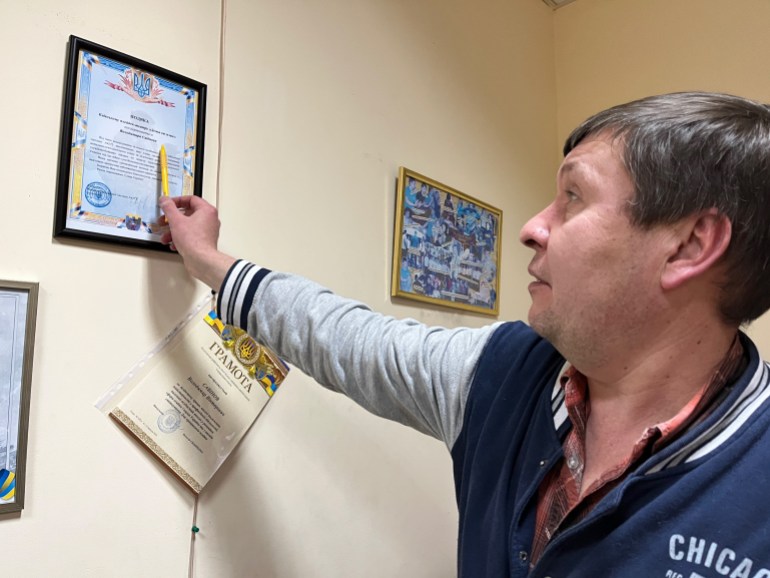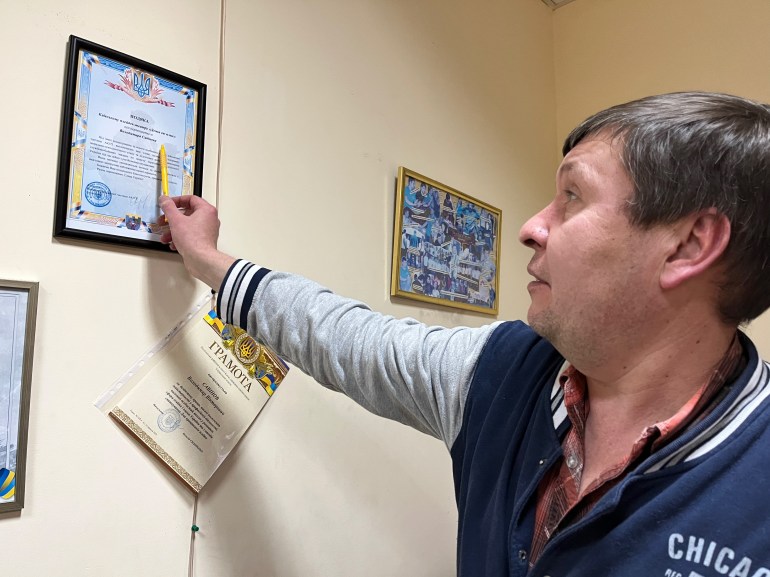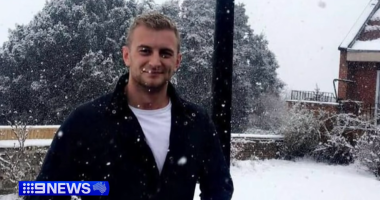When Russia invaded Ukraine, 28-year-old Alina Viatkina adopted a dog.
Even though she did not have a permanent home of her own, she knew that taking care of a pet would be a comfort. It was a wartime coping mechanism.
Since 2017, Viatkina, a psychology student, has worked as a manager in an NGO supporting veterans and their families with their mental health, an issue which has become increasingly pressing as the full-scale war continues for a third year.
Ukraine’s health ministry estimates that almost half of the population, 15 million of 38 million, are in need of psychological support, while three to four million people likely need medication.
First Lady Olena Zelenska has been the face of a campaign called How are you? The question has already become a symbol of care and mental health support in times of crisis. Her website lists a number of apps and organisations that can help with trauma.
But despite the resources invested, many fear a crisis is imminent.
“In the first year of the full-scale invasion, we saw a wave of anxiety. In the second year, we experienced a wave of depression,” said Viatkina. “When the war is over, we will have a mental health crisis, because there are too many emotions that people are suppressing now.”
After the Russia-Ukraine conflict began in Ukraine’s east in 2014, she joined a medical volunteer battalion. Then, at 19, she spent almost a year observing the horrors of war up close.
When she returned home, she could not find peace.
Diagnosed with panic attack disorder and depression, she devoted her professional life to helping veterans and their families.
When the full-scale invasion started in 2022, her husband joined the army.
“The experience of being a soldier’s wife is more difficult than being at the front line. I work with a therapist, but I still feel that my whole life stopped the day when he joined the army again,” she said.
“When he comes back from the front I’m torn. As his wife, I want to spend time with him. But as a veteran and a mental health specialist, I know that he wants to be left alone to process the experience.”
As well as providing therapy sessions, Viatkina and her team launched Baza last year – an app using cognitive behavioural therapy tactics to help those unable or hesitant to attend therapy sessions.
It has meditation recordings, explains what trauma does to the body, and teaches people how to deal with stress.
The use of apps and internet technology has become common in addressing Ukraine’s mental health challenges.
Svidok, or the witness, is another.
The platform collects anonymous testimonies of Ukrainians about their experiences of war. On the one hand, it may provide an important resource for the International Criminal Court (ICC) to prosecute Russian crimes. On the other, it works as a diary for those who find solace in describing their feelings.
With about 4,000 members and 2,000 testimonies, Svidok has recorded many people’s experiences of everyday life, volunteering, migration and the tragedy of war.
Writing a diary was an initial coping mechanism for Olena Kuk, 27, a TV presenter and communication specialist at the AI For Good Foundation, whose team created Svidok. She had her first panic attack while interviewing the US ambassador on camera, which is when she knew that she needed to prioritise her health.
“I started crying in the middle of this interview. I was so embarrassed because it did not feel professional,” Kuk said. “I couldn’t breathe, there was simply not enough air. After that breakdown I understood that, no, I was not OK.”
Psychotherapy, volunteering and working on Svidok eventually helped.
“In the first months of war, when you heard an alarm, you went to hide, but not any more. Now, we sometimes have to choose between being sane and being safe,” she said.
But apps, no matter how innovative, could have a limited impact.

Many Ukrainians, especially those old enough to remember the Soviet empire, do not feel comfortable addressing their trauma. Back then, the psychiatric system was often used against dissidents, which has fuelled distrust in therapy among those who associate it with involuntary captivity in mental institutions.
“Soviet people believe that if you ask for help, you’re weak,” said Volodymyr Savinov, a psychologist and research fellow at the Institute of Social and Political Psychology in Kyiv.
For the older generation, getting together in their communities and sharing experiences is usually a preferred way of dealing with trauma. For this reason, Savinov has used the method of playback theatre.
A form of improvisational storytelling, it uses the audience’s personal stories as a basis for performance. The viewers share their experiences one by one, while actors act them out in a collective confrontation of trauma.
“People are against seeking psychological help, but when you say theatre, they are eager to participate and share their stories, their pain. You can’t call it psychotherapy, but it is a theatrical practice that has a therapeutic effect,” Savinov says.
With his group, Deja vu, Savinov has worked with internally displaced people and veterans in hospitals.
But the war has not spared his project. One of his actors joined the army, one left the country, and another was killed in combat.
There is currently only one psychologist for every 100,000 people in Ukraine, a number which should be increased at least fivefold, Savinov said.
However, educating another generation of therapists will take time.
“With the war, psychologists have become largely volunteers with an increased number of clients,” he said. “I had to develop resilience to stress and learn new methods to continue working. But if not me, then who?”
Read More: World News | Entertainment News | Celeb News
Al Jazeera










